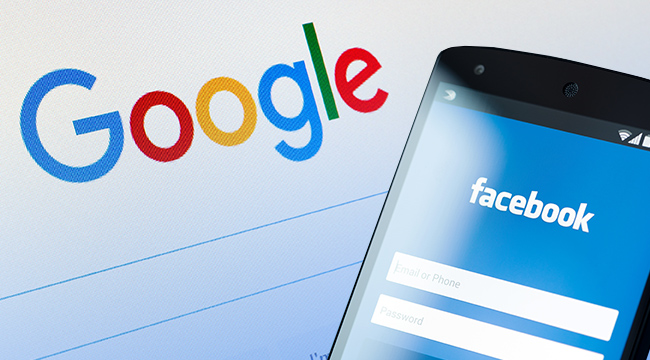
Tech companies like Facebook and Google that have become essential elements of 21st century life should be regulated as utilities, top White House adviser Steve Bannon has argued, according to three people who’ve spoken to him about the issue.
Bannon’s push for treating essential tech platforms as utilities pre-dates the Democratic “Better Deal” that was released this week. “Better Deal,” the branding for Democrats’ political objectives, included planks aimed at breaking up monopolies in a variety of sectors, suggesting that anti-monopoly politics is on the rise on both the right and left.
Bannon’s basic argument, as he has outlined it to people who’ve spoken with him, is that Facebook and Google have become effectively a necessity in contemporary life. Indeed, there may be something about an online social network or a search engine that lends itself to becoming a natural monopoly, much like a cable company, a water and sewer system, or a railroad. The sources recounted the conversations on the condition of anonymity because they were not authorized to give the accounts on record, and could face repercussions for doing so.
Regulating a company as a utility does not mean that the government controls it, but rather that it is much more tightly regulated in what it is able to do and prices it is able to charge. And it doesn’t mean every element of the company would be regulated in that way. For Google — which now calls itself Alphabet and has already conveniently broken itself up into discrete elements — it may only be the search function that would be regulated like a utility.
Under the Obama administration, the Federal Communications Commission moved forward on a plan to regulate internet service providers as utilities, barring them from slowing down traffic to a site in order to pressure it into paying higher fees. The Trump administration is pushing to reverse that move, which complicates Bannon’s message.
Bannon’s argument is bolstered by an unlikely player: Facebook founder and CEO Mark Zuckerberg. For years, Zuckerberg routinely described Facebook as a “social utility.” In an interview in 2007 with Time magazine, he was asked to elaborate on what had become a central talking point.
TIME: Why do you describe Facebook as a “social utility” rather than a “social network?”
Zuckerberg: I think there’s confusion around what the point of social networks is. A lot of different companies characterized as social networks have different goals — some serve the function of business networking, some are media portals. What we’re trying to do is just make it really efficient for people to communicate, get information and share information. We always try to emphasize the utility component.
The emphasis on the utility component has disappeared now that Zuckerberg is surrounded by lawyers well versed in monopoly laws, but the argument is as resonant today — in fact, more so — than it was a decade ago.
Tech companies, meanwhile, have feuded publicly with the administration, particularly over its decision to back out of the Paris climate accord, a move driven by Bannon.
Silicon Valley’s liberal cultural politics puts it at odds occasionally with more conservative, rural Trump voters. Facebook was confronted by a backlash over its news curating during last year’s presidential campaign. With insiders claiming there was an anti-conservative bias, Facebook pulled its live team off the project. Instead the social media giant turned its curation over to an algorithm that had little ability to detect whether an article had been utterly fabricated, giving rise to the explosive growth of “fake news” (before the moniker morphed into a description of any news a reader objects to).
Silicon Valley caught on late to the Washington game. In 2011, Sen. Pat Leahy, D-Vt., then the chairman of the Judiciary Committee, complained that Google had waited too long to hire an armada of lobbyists. “Sometimes a company should pay attention early on, not just when matters happen,” he said. “But I can’t tell them, nor would I, who they should hire or not.”
Google was playing catch up at the time, and hiring every committee staffer who wasn’t nailed down. “I consider myself a public works project right here,” Leahy said of the antitrust investigation he was leading. “My colleagues call it the Leahy Full Employment Act.”
They have since caught up: In the first few months of the Trump administration, tech firms set new lobbying spending records in Washington.
Sign up to get Ryan Grim’s newsletter, Bad News, in your inbox.
The post Steve Bannon Wants Facebook and Google Regulated Like Utilities appeared first on The Intercept.
